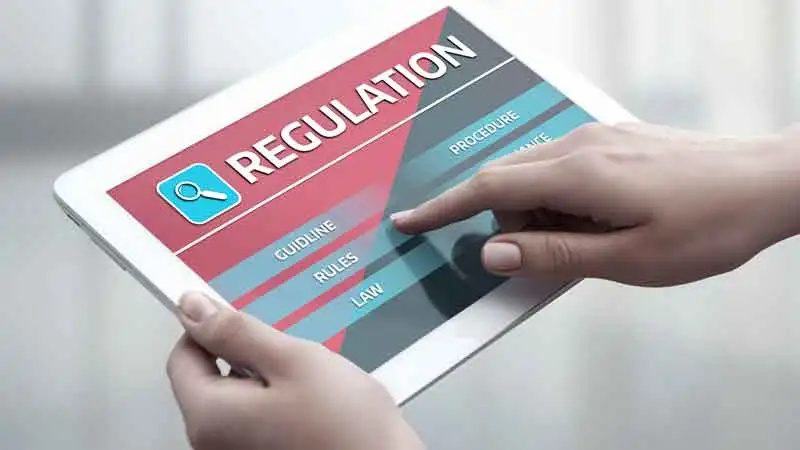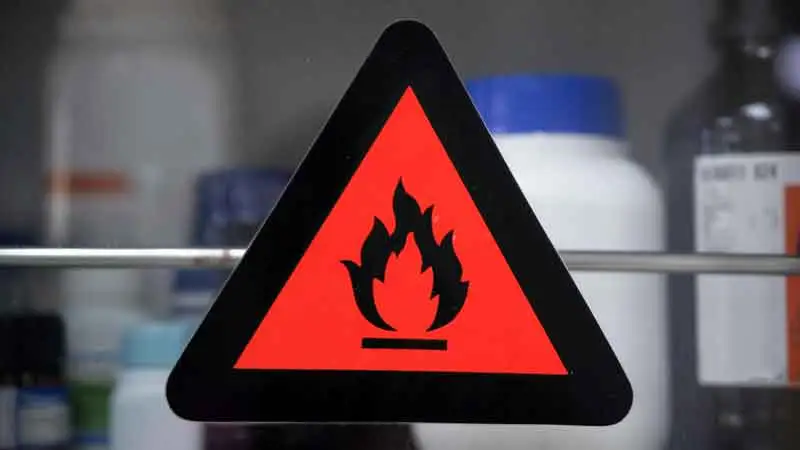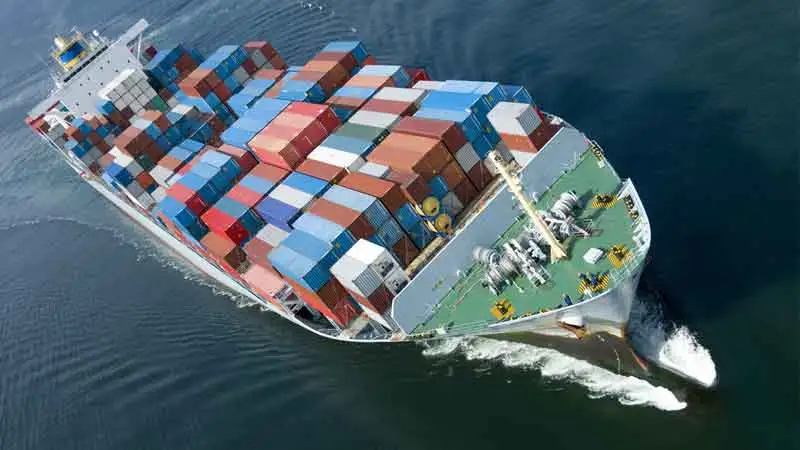We will conduct our business in accordance with the Responsible Care Guiding Principles and strive to comply with all applicable laws and internal EHSS requirements. We will continuously improve our EHSS systems, products and activities to achieve operational excellence in the conservation of energy and natural resources, pollution prevention, and the health, safety and security of our employees and the public.
Every year, TINTOLL will formulate annual goals, annual policies and key measures, and use the plan to carry out process safety disaster prevention and occupational safety and health activities. We have been carrying out activities in accordance with the annual goals of "zero major process safety accidents" and "zero major occupational accidents" and the annual policy of accurately identifying weak links in the workplace and making steady improvements. The factory's target performance is regularly reviewed and new targets are set each year to continuously improve our operations.
We inspect every critical step in the manufacturing process and every vital piece of equipment in our factories, and work hard to protect everyone who comes into contact with our products every day, including those who make, ship, buy, use and dispose of our materials. We steadily implement change management and risk assessment, thoroughly respond to accidents and occupational accidents, and effectively use information to prevent the recurrence of accidents and occupational accidents and the occurrence of similar accidents and accidents.
In order to minimize and control injuries in the event of accidents or natural disasters such as earthquakes, we have established an emergency management system inside the factory to prevent negative impacts on the surrounding areas of the factory and conduct drills accordingly.
In order to prevent accidents and occupational accidents, facilities are regularly inspected, repaired, and replaced as necessary, and are regularly monitored to ensure that signs of abnormalities in facilities are quickly detected and appropriately dealt with.
We strive to develop individuals who always put safety first, who can think for themselves, use good judgment and take action. In addition, in order to strengthen risk assessment, we actively cultivate human resources with professional risk assessment knowledge and skills, and all employees remind each other to practice safe behavior.
In addition, we use the simulation experience facilities of process safety incidents and occupational accidents to carry out experiential education to improve employees' sensitivity to hazards.
For technicians, we also provide chemical engineering education and conduct initiatives such as mandatory participation in process safety assessments at their respective workplaces. Through these efforts, we are producing chemical process safety engineers with expertise in chemical substances and reactions and risk assessment methods.
We conduct our business in accordance with the Responsible Care guiding principles and strive to comply with all applicable legal and internal environmental, health, safety and security (EHSS) requirements. The safety of the environment, people and communities is important to us. We take proactive precautions to protect our employees, the communities in which we live and work, and the environment.
Our continuous improvement of EHSS systems, products and activities enables us to better conserve energy and natural resources, prevent pollution and protect the health, safety and security of our employees and the public.

TINTOLL aims to contribute to the global environment, actively working to reduce greenhouse gas emissions, save resources and energy, prevent air, water and soil pollution, limit waste generation, encourage reuse and recycling, participate in activities and develop technologies that help protect the natural environment, and develop and produce environmentally friendly products. TINTOLL has set an annual goal of zero environmental accidents and contributing to the global environment .
In order to ensure legal compliance, we carry out training on environmental laws and regulations and conduct environmental audits to ensure compliance with environmental laws and regulations, and systematically reduce environmental risks through risk assessment. We are committed to reducing our impact on the environment by reducing greenhouse gas emissions, saving resources and energy, and reducing pollutant emissions. We actively communicate with local communities to make them aware of our environmental protection measures to promote harmonious coexistence.
According to the goal set by SINOPCC Group Corporation to reduce greenhouse gas emissions by at least 45% compared with fiscal year 2010 by fiscal year 2030, TINTOLL strives to reduce greenhouse gas emissions to help achieve the 2050 emission reduction goal.
TINTOLL reduces the discharge of harmful air pollutants and public water pollutants by installing and improving waste gas and wastewater treatment facilities.
According to the biodiversity protection policy, TINTOLL is committed to contributing to the global environment and reducing environmental risks and impacts, thereby reducing the impact of our business activities on biodiversity.

TINTOLL is committed to implementing product stewardship initiatives to protect the environment and human health and safety through safe management at all stages of the product life cycle, including raw material procurement, research and development, production, distribution and marketing, use, recycling and disposal. Through these efforts, we strive to ensure the end use of our products from a quality assurance and security export control perspective.
TINTOLL communicates with customers, regulators and the public about the safe and secure use and potential hazards of the products we manufacture, and any associated risks, to ensure our products are handled appropriately at every stage of their life cycle.
TINTOLL regularly evaluates the health, safety, security and environmental performance and social responsibility of suppliers, and obtains information from suppliers related to the safety of purchased raw materials.
TINTOLL strives to develop products that have no risk or minimize adverse effects on health, safety and the environment throughout their life cycle, and retains original development information to ensure safety.
TINTOLL puts human health and safety first, protects the health and safety of our employees and local communities by improving production processes, and minimizes our environmental footprint by avoiding chemical pollution, reducing energy consumption, supporting recycling and ensuring proper disposal of waste from the products we manufacture, and securing production information.
TINTOLL proactively provides accurate and detailed information related to product safety and handling to business partners involved in the storage, transportation, distribution, marketing and use of our products to ensure proper management .
TINTOLL works with business partners to provide relevant information to ensure safe and secure use and to support the recycling, reuse and proper disposal of our products.

TINTOLL complies with chemical management regulations and has sound internal management rules and system checks to ensure proper management of chemicals in all its business areas.
TINTOLL is continuously sourcing, aggregating and sharing information on all substances associated with its products, including chemical hazards, applicable national and international regulations, and risk assessment results. We also classify based on their hazardous properties, market applications, production volume, etc. , and also include other factors such as potential for human and/or environmental exposure and potential environmental and human health hazards and risks associated with their chemical constituents.
Due to differences in chemical regulations in different countries and regions, in order to work within the scope of regulations, TINTOLL has compiled and published Safety Data Sheets (SDS), which provide documents such as characteristics, hazards and toxicity of chemical substances, safety measures and emergency response information when providing chemicals to other partners.
TINTOLL strives to meet all applicable regulatory requirements in the jurisdictions in which we conduct business. As part of this work, we are actively involved in the EU's Registration Evaluation and Authorization of Chemicals (REACH), the UK's REACH and Turkey's KKDIK (a law similar to REACH). We have a dedicated team focused on the implementation and registration process to ensure long-term supply to our customers. As we go through the registration process, we maintain close communication with our clients and suppliers to ensure a successful implementation.
TINTOLL classifies chemical substances under GHS (Globally Harmonized System of Classification and Labeling of Chemicals), determines the applicability of laws and regulations, and generates SDS and labels that comply with the laws and standards of countries and regions such as Europe, the United States, East Asia, and ASEAN countries .
For conflict minerals that may cause human rights issues, TINTOLL has established policies and strives to meet customer requirements.

TINTOLL aims to contribute to the sustainable development of human beings, society and the planet by providing solutions to environmental and social problems. Respect for human rights is an essential element in realizing our vision.
Respect for Human Rights
We understand that our business may have internal and external human rights impacts throughout our business activities, including research and development, raw material sourcing, manufacturing, product and service sales, distribution and disposal. We strive not to cause human rights violations ourselves, nor to contribute to human rights violations by others, such as our business partners.
We are committed to respecting, at a minimum, human rights as set out in the International Bill of Human Rights and the ILO Declaration on Fundamental Principles and Rights at Work. In addition, we support and conduct our business in accordance with the United Nations Guiding Principles on Business and Human Rights and the ten principles of the United Nations Global Compact.
We abide by the laws of the countries and regions in which we do business. Where local legal requirements conflict with internationally recognized human rights standards, we seek ways to respect international human rights principles without violating local laws.
Human Rights Due Diligence
Based on the concept of "human rights due diligence", we are committed to identifying, preventing, mitigating and explaining the negative impact on human rights that we may be involved in. We comply with country-specific laws and regulations related to human rights due diligence.
If we discover that we have caused or contributed to a human rights violation, we will endeavor to remedy it through appropriate means and procedures. If we become aware of adverse impacts on human rights that are directly related to our business, we will work with relevant stakeholders to use our knowledge and expertise to help mitigate such impacts, even if we did not cause or contribute to these impacts.
We recognize the importance of understanding negative impacts on human rights from the perspective of stakeholders, especially those affected. We are committed to engaging with our stakeholders when we consider actions to address potential and actual adverse human rights impacts related to our business.
Human rights related to our business activities
We recognize that addressing the following human rights issues related to our business activities is an important part of our human rights responsibilities.
a. Discrimination
We strive to maintain a workplace free from discrimination based on race, color, sex, age, national or ethnic, national or social origin, caste, aboriginal origin, family status, disability, HIV/AIDS status, marital status, pregnancy, language, sexual orientation, gender identity, religion and trade union affiliation, political or other opinion.
b. Harass
We must not engage in any conduct that degrades personal dignity, such as harassment in the workplace. We will not tolerate any speech or behavior that may constitute physical or mental harassment or cause the person concerned to feel humiliated.
c. Forced Labor
We will not engage in forced labor and will not tolerate any form of modern slavery, including bonded labor and human trafficking.
d. Child Labor
We shall not employ any child under the legal working age as defined by national and/or local laws and regulations. We prohibit the assignment of hazardous or harmful work to young workers.
e. Recognition of the Right to Freedom of Association and Collective Bargaining
We respect freedom of association, the right to collective bargaining, and other civil and political rights. We will continue to build strong employer-employee relationships through engagement and open dialogue, and foster a workplace culture and environment that places a high value on communication, transparency and teamwork.
f. Health and Safety
We put safety first and work hard to prevent workplace hazards. We shall implement safety management in accordance with applicable national and/or local laws and ensure a safe occupational environment through the voluntary and active efforts of each employee. All employees are encouraged to report any safety concerns or concerns without fear of adverse treatment.
g. Working Hours and Wages
We comply with applicable laws and regulations regarding working hours and wages in the countries and regions in which we operate. We are committed to setting appropriate maximum working hours limits in accordance with local laws, ensuring reasonable breaks and holidays, paying allowances in accordance with relevant laws, and prohibiting unfair wage reductions. We strive to create a comfortable working environment while paying full attention to the safety and health of our employees.
h. Privacy Protection
We respect and protect personal privacy. When handling personal information, we will implement procedures to prevent information loss or leakage in accordance with relevant laws and regulations.
i. Product Usage
We conduct thorough quality control to ensure product safety and continuous quality improvement. We will sincerely listen to the requirements of customers and relevant stakeholders, and will continue to work hard to ensure that our products can be used safely and reliably in accordance with the basic principles of Responsible Care activities.
j. Business Partner
We will share our position on human rights with all business partners and are committed to working with suppliers and other relevant stakeholders to promote respect for human rights in our business activities. We strive to integrate human rights risk considerations into the merger and acquisition process.
k. Community
We understand that our business activities may affect the human rights of local communities, such as land rights, water rights, the health of individuals in the community and the rights of Indigenous Peoples. In addition to understanding local cultures and customs, we are committed to respecting human rights and acting as good corporate citizens in our communities to meet the expectations of local communities.
l. Human Rights in High-Risk Situations
Based on the fundamental philosophy of respect for human rights, we work especially hard to prevent human rights violations when we are faced with high-risk environments, including areas affected by conflict, natural disasters or cultures of corruption.
In addition, we seek to source minerals responsibly, including managing the risks associated with conflict minerals through due consideration of possible related human rights impacts or environmental burdens.
m. Grievance Mechanism
If our members suspect an actual or potential violation of applicable laws and regulations, or a violation of internal policies, including this Human Rights Policy, they may report the case to their supervisor or through our reporting system. Investigate reports received in order to take corrective action when violations occur and to prevent recurrence.
We will continue to work to improve the effectiveness of our grievance mechanisms to properly address potential adverse human rights impacts related to our business activities.
n. Education and Training
We are committed to raising awareness of human rights within the organization and work to ensure that every member is aware of issues related to human rights. In addition, we strive to integrate human rights into our relevant corporate procedures in order to integrate this policy into our business activities. We will further provide our officers and members with the necessary education and training to equip them with the knowledge and ability to effectively implement this policy.
We strive to create an organization where our diverse workforce can work in positive and inclusive ways. We practice equal opportunity in recruitment, job assignment, promotion, employability and career development. Our goal is to create an environment where each employee understands their role, develops the necessary competencies and respects diverse ways of working.
Reporting and Communication
We will monitor policy implementation, including the status of human rights due diligence, and regularly disclose the progress of our efforts related to our human rights commitments.

TINTOLL has invested considerable effort and risk management measures to ensure the safe transport of hazardous materials.
Compliance with relevant laws, strict compliance, emphasis on risk management, and respect for human rights will be important considerations in our selection and employment of logistics operators.
We accurately inform logistics companies of the chemical identity and safety of our products, ensure that all shipments are properly labeled, and work to increase awareness and safety sensitivity of the products we ship. We will define safe work procedures, take steps to ensure safe routes, and develop safe transport protocols as needed to prevent occupational injuries and accidents.
We work together with various logistics companies to continuously improve logistics efficiency and stability, and discuss improvement measures together. We make traffic plans in advance to alleviate traffic peaks during the Golden Week, Spring Festival and other long holidays.
TINTOLL holds regular responsible care and risk management meetings, maintains close communication, and implements measures aimed at reducing problems, accidents, and work-related injuries.
